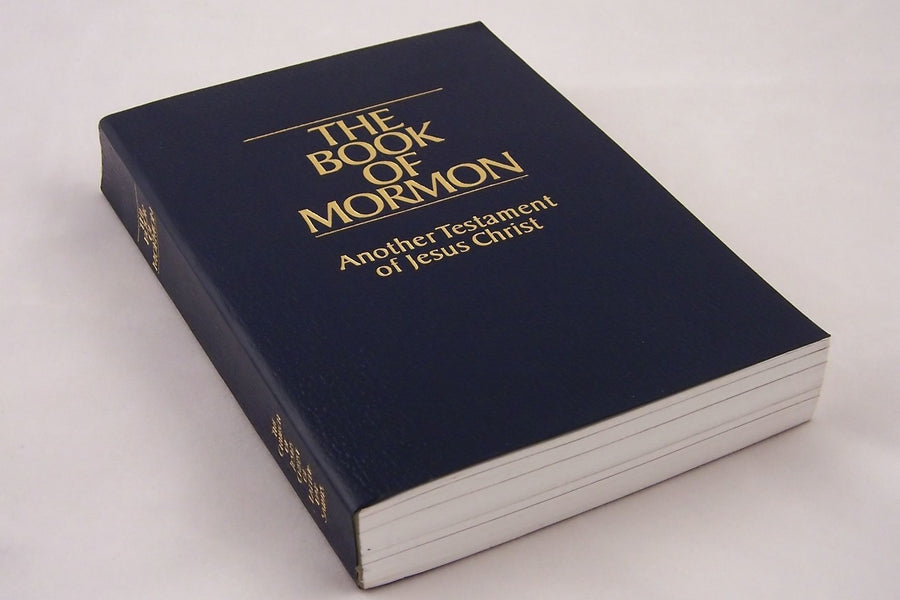“Are Mormons Christian?” Since the 1820s, when Joseph Smith founded the religious movement, evangelicals and other orthodox Christians have answered with a resounding “no.” Over the past decade, though, many Americans have begun to provide a different response. In an interview with CNN, megachurch pastor Joel Osteen said that while the Mormon faith is “not traditional Christianity” he still views them as “brothers in Christ.”
And earlier this month, the widely read evangelical blogger David French wrote,
I’d argue that our view of salvation—whether Arminian or Reformed—is of enormous consequence, going directly not only to the nature of God but also how we understand each moment of our lives, yet I rarely hear anyone seriously ask, “Are Methodists Christian?” Perhaps that’s not so much because the theological differences aren’t real and profound but because we’ve made our historical peace through shared understanding of our faith in Christ. Perhaps its time that we make that same peace with Mormons.
Are Mormons our fellow “brothers in Christ?” Are the theological distinctions between Mormonism and evangelicalism similar to the differences between Presbyterians and Methodists?
In order to examine these questions, I’ve compiled answers from various resources and subject-area experts and presented them in the form of a FAQ. This article is not intended to be an in-depth explanation of Mormon history or theology, but rather an examination of areas that are relevant to the question of whether Mormons should be considered by evangelicals to be Christians. For more information on Mormonism I recommend Andrew Jackson’s Mormonism Explained: What Latter-day Saints Teach and Practice.
What do Mormons believe about God?
Mormons claim that God the Father was once a man and that he then progressed to godhood (that is, he is a now-exalted, immortal man with a flesh-and-bone body). (1 – ESV Study Bible article on religious cults)
According to the Church of Jesus Christ of Latter-Day Saints Doctrine and Covenants, “The Father has a body of flesh and bones as tangible as man’s; the Son also;” but “The Holy Ghost has not a body of flesh and bones, but is a personage of Spirit.”
As Kevin DeYoung says,
Whether God the Father is self-existent is unclear. There was a long procession of gods and fathers leading up to our Heavenly Father. Brigham Young once remarked, “How many Gods there are, I do not know. But there never was a time when there were not Gods and worlds.” What is clearer is that the Mormon God is not a higher order or a different species than man. God is a man with a body of flesh and bones like us. (2 – Kevin DeYoung, “Mormonism 101”)
Do Mormons believe in the Godhead?
Yes, but Mormons mean something completely different by the term “Godhead” than it has been understood throughout Christian history. As Mormon leader Bruce D. Porter explains,
The Book of Mormon refers in several passages to God, Christ, and the Holy Ghost as “one God,” but Latter-day Saints understand this to mean they are one in mind, purpose, will, and intention. Their unity is the same unity of which Christ spoke in his high-priestly prayer following the Last Supper: that his disciples may “be one; as thou, Father, art in me, and I in thee, that they also may be one in us” (John 17:21). Hence, Latter-day Saints rarely use the term Trinity, but prefer the title Godhead to refer to the three divine beings who govern our universe in perfect oneness.” [emphasis in original] (3 – Porter, “Is Mormonism Christian?”)
Do Mormons believe in the Trinity?
No. As the religion scholar Gerald R. McDermott notes, “At the end of his life, in his King Follett funeral sermon (1844), Joseph Smith prophesied against the Trinity, saying that the Father, Son, and Holy Ghost are three separate Gods.” (3 – McDermott, “Is Mormonism Christian?)
What is the Mormon view of Jesus?
Mormons believe that Jesus Christ was the firstborn spirit-child of the heavenly Father and a heavenly Mother. Jesus then progressed to deity in the spirit world. He was later physically conceived in Mary’s womb, as the literal “only begotten” Son of God the Father in the flesh (though many present-day Mormons remain somewhat vague as to how this occurred). (1)
Porter explains that,
A vital aspect of Latter-day Saint theology—and its most obvious difference from traditional Christianity—is the belief that Jesus Christ is an individual being, separate from God the Father in corporeality and substance. Mormons do not accept the phrase in the Nicene Creed that describes the Father and Son as being “of one substance,” nor do we accept subsequent creeds by ecumenical councils that sought to clarify the nature of the Trinity in language describing them as one indivisible spiritual being. (2)
How many Gods do Mormons believe exist?
At least four separate gods. The Encyclopedia of Mormonism teaches that there is a “Mother in Heaven,” who is like the Heavenly Father “in glory, perfection, compassion, wisdom, and holiness.” God “is plural,” it declares.
Is Mormonism polytheistic?
Mormons deny they are polytheistic. As McDermott explains,
The theologian Stephen Robinson denies that Mormonism is polytheistic, and strictly speaking he is right. Polytheism portrays a world in which competing gods either vie for ultimate authority or have delimited provinces over which they rule. The Mormon picture is closer to henotheism, which posits a supreme God over other lesser, subordinate gods. The Mormons say that the Father is at least functionally over the Son and the Holy Ghost, and they are the only Gods with which we have to do.
How do Mormons view orthodox Christians?
That we are apostates. Mormons claim that “total” apostasy overcame the church following apostolic times, and that the Mormon Church (founded in 1830) is the “restored church.” (1)
Are Mormons Christian?
No. On many key points Mormon beliefs are antithetical to historic Christian orthodoxy. However noble the intentions for wanting to include them as “brothers and sisters in Christ,” we do violence to the historical understanding of the term “Christian” by expanding it to mean those who have rejected orthodox Christian beliefs for a nineteenth-century heretical theology.
We can’t love our neighbor and turn a blind eye to their eternal fate. We should therefore pray diligently that our friends and family who put their trust in this false religion might come to know and accept the true Gospel of Jesus Christ.
Source: TheGospelCoalition.org



